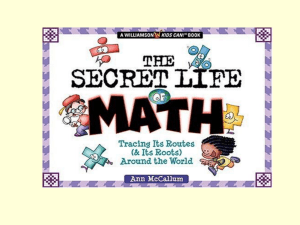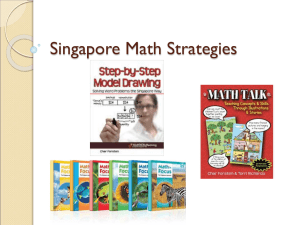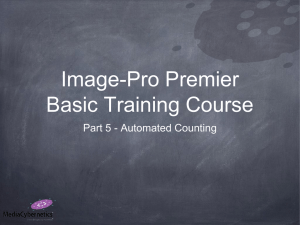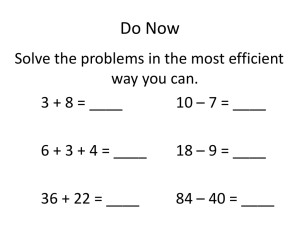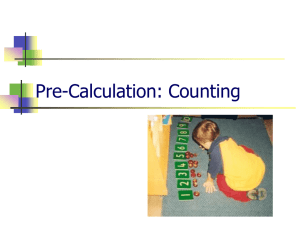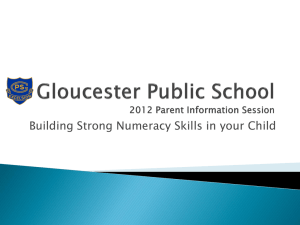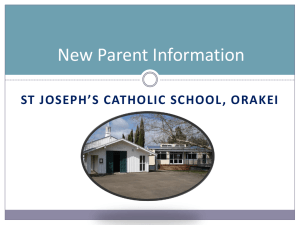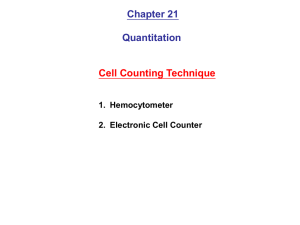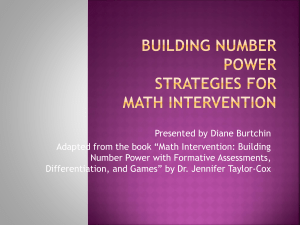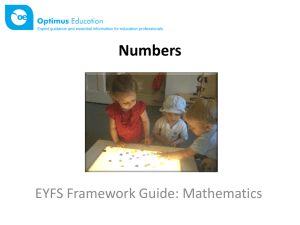Counting
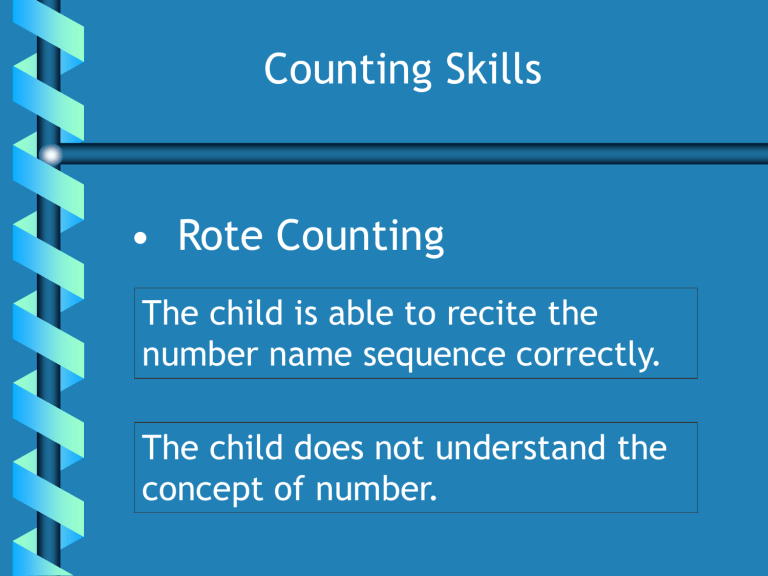
Counting Skills
• Rote Counting
The child is able to recite the number name sequence correctly.
The child does not understand the concept of number.
Counting Skills
• Match Counting
The child is able to use one to one correspondence to “name” each object in a group with a number in correct sequence.
The child does not understand that the last number named tells how many objects are in the group.
Note: Frank uses the term “point” counting.
Counting Skills
• Rational Counting
The child is able to use one to one correspondence to count objects in a group. S/he may or may not point while counting.
The child understands that the last number named tells how many objects are in the group.
Counting Skills
• Counting On
The child can count on from a number other than one.
For example, a child might know that there are 8 pennies in one pocket. Then s/he might reach in the other pocket and count on the remaining pennies beginning with 9.
Counting Skills
• Skip Counting
The child can rationally count by grouping objects into a particular size group, n. The child says every nth number.
Counting Skills
• Unitize tens
The child can think of a group of ten ones as one ten. The child can think of one ten as a group of ten ones.
Multilink blocks help. Base ten blocks are problematic. Why?
Counting Skills
• Understand Place Value
Notation
The child is able to interpret 23 as two groups of ten and 3 ones. Upon seeing how many tens and ones s/he has, the student immediately knows the quantity without further counting.

